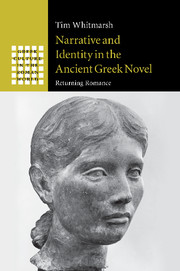6 - Limen
Published online by Cambridge University Press: 03 May 2011
Summary
In the previous chapter, we considered the status of the end. In this final chapter, I want to consider the middle, the liminal phase: the space of possibility, rapid movement, fluidity of status, anxiety – of narrativity, the set of events, thoughts, emotions and possibilities that both enable narration and define the material proper to the genre. Paradoxically, despite the teleology that we traced in the previous chapter – the characters almost always long to leave the adventure world and reach the end – it is the middle that effectively defines the romance form. No one would claim that these texts are ‘about’ settled domesticity. Their energy and interest derives from pirates, trials and love rivals; that is to say, from liminality.
Liminality brings us to anthropology, and to van Gennep's famous three-stage model of the rites of passage (pre-liminal, liminal, post-liminal). As we have seen (and many others have observed), the novels do indeed rest upon mythic and ritual patterns of separation, marginalisation and reincorporation. It will also be helpful to pause on Victor Turner's idea of liminality as ‘anti-structure’. For Turner, the liminal field is imagined in opposition to society's fixed ‘states’ of identity (such as marriage, adulthood, social roles), and reciprocally defines them. But it is more than an antithesis; it is an experimental space, ‘a realm of pure possibility whence novel configurations of ideas and relations may arise’, a ‘stage of reflection’.
- Type
- Chapter
- Information
- Narrative and Identity in the Ancient Greek NovelReturning Romance, pp. 214 - 252Publisher: Cambridge University PressPrint publication year: 2011



